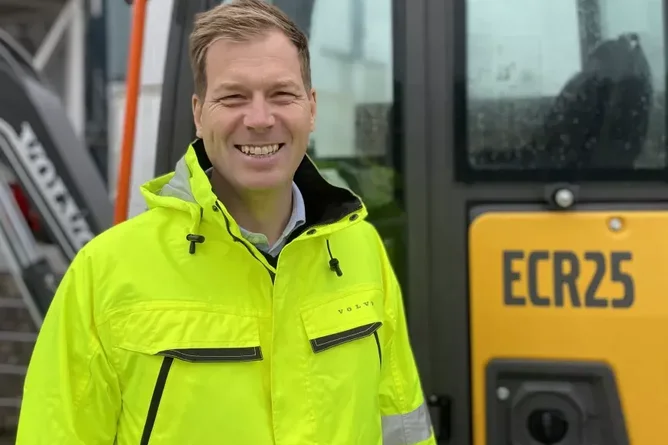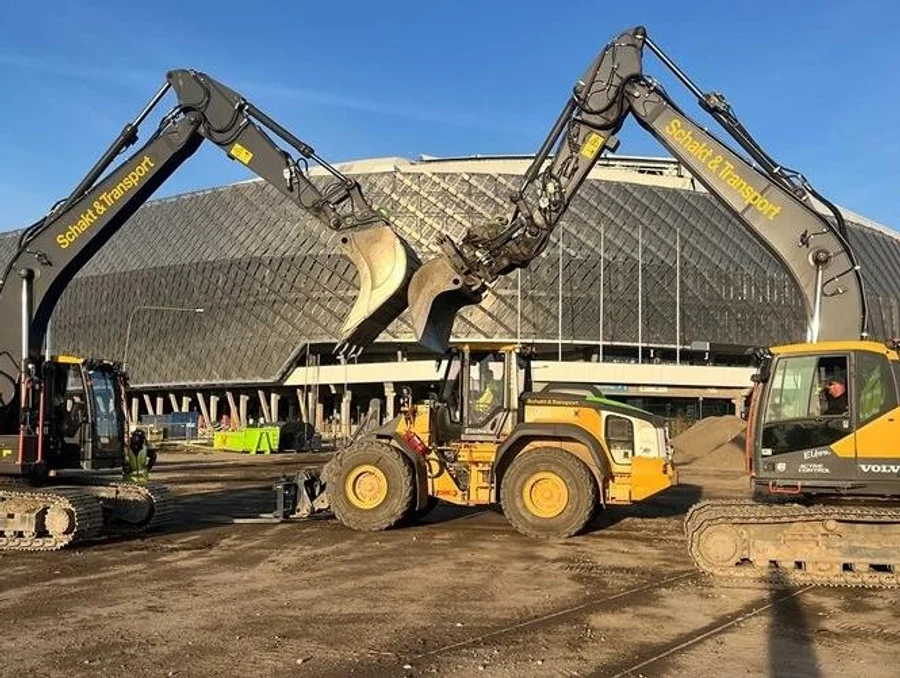Stockholm’s Slakthusområdet achieves 50% electric operation with Volvo, showcasing sustainable construction and significant emissions reductions.
Construction is widely recognised as a challenging industry to decarbonise.
Combined with manufacturing, construction contributes to more than half of the global emissions.
The UN’s Environment Programme further identifies construction as the largest source of greenhouse gas emissions worldwide.
However, a transformative project in central Stockholm’s Slakthusområdet, a meat-packing area, is making significant strides towards reducing these emissions.
Slakthusområdet: Revolutionising sustainable construction
In Stockholm, the Slakthusområdet district is undergoing an ambitious redevelopment that aspires to set new benchmarks in sustainable construction.
Initially aiming for 10% electric machine operation, the project has escalated its goals and now targets a 50% electric operation.
This initiative increasingly integrates electric machines from Volvo Construction Equipment (Volvo CE).
Volvo says the project is “a testbed for more sustainable construction and demonstrates the enormous and often untapped potential of fossil-free procurement contracts as a driver for change”.
Projected to complete by 2025, the redevelopment has already made notable p,rogress.
By June 2024, just the initial phase had cut down 2,759 tonnes of CO₂ aligning with Stockholm City’s wider environmental targets.
The city endeavours to become climate positive by 2030 and fossil-fuel free by 2040.
The project’s next phase involves a trio partnership among Volvo CE, Skanska and Swecon, which introduces carbon calculations at the tender phase, further enhancing the accountability and innovation in sustainable building practices.
KEY SUSTAINABILITY TARGETS FOR PHASE TWO INCLUDE:
- 100% fossil-fuel free site operations using HVO100 fuel
- Increasing electric operation from 10% to 50%
- Utilisation of climate-reduced concrete
- Adherence to strict carbon calculation guidelines
“The first phase showed the effectiveness of electric machines in performing tasks while significantly reducing CO₂ emissions,” Fredrik Tjernström, Head of Electromobility Solutions Sales at Volvo CE, says.

“This is invaluable for city centre projects to help municipalities meet their emission reduction targets and enhance air quality, as well as reducing noise levels for everyone’s benefit.”
Anna Göransdotter, Project Manager at Skanska, adds: “When municipalities like Stockholm City prioritise carbon reduction in contract awards, it not only sets an inspiring precedent for other regions, but also drives innovation across the construction industry.
“This proactive approach creates a ripple effect throughout the entire value chain, pushing all stakeholders to explore new possibilities and expand the boundaries of what can be achieved in sustainable construction.”
Electric machinery leading the charge
Volvo CE pioneers the move towards sustainable building sites by supplying advanced electric machinery for the Slakthusområdet project. The fleet consists of:
- Two Volvo EC230 Electric crawler excavators
- One L120H Electric Conversion wheel loader
- Two electric trucks with trailers
- Various electric-powered tools for sorting and compaction
These machines, affectionately named Electra, Ellen and Elton, receive power from a robust charging infrastructure, courtesy of Eviny.
This setup includes two fast chargers and three battery packs, preparing the site for extensive electric-powered operations.
Breaking it down: The impact
The true impact of such pioneering projects stretches beyond emissions figures.
This initiative targets a drastic cut in emissions to below 3.5 tonnes of CO₂ per SEK 1 million (US$92,000) turnover, compared to the typical 11 to 29 tonnes in similar projects.
More regions and sectors watching Stockholm’s advancement could spark a broader change, influencing global strategies for urban development and sustainability in construction.
Anders Österberg, Deputy Mayor of Stockholm and Chair of the City Development Committee, says: “In the City of Stockholm, we recognise the vital role we must play in accelerating the transition to fossil-free construction sites.
“The City of Stockholm has a goal of becoming climate positive by 2030. To reach this goal we need to continue to require the use of electrically powered construction vehicles and fossil-free construction sites in our procurement.”



